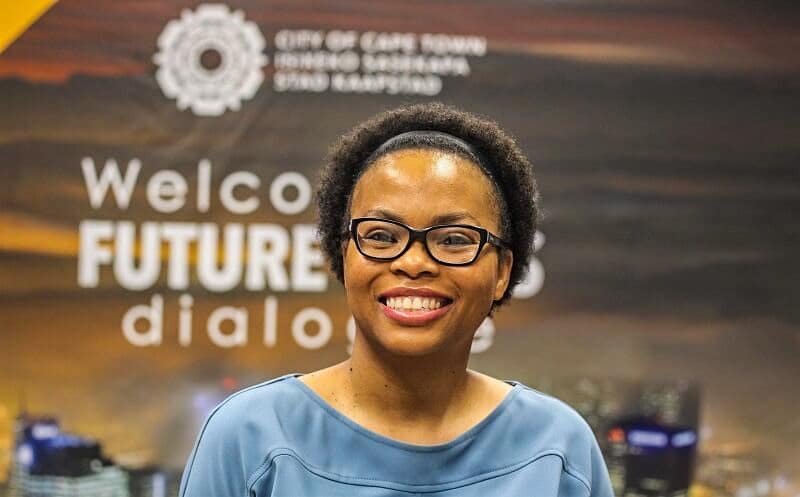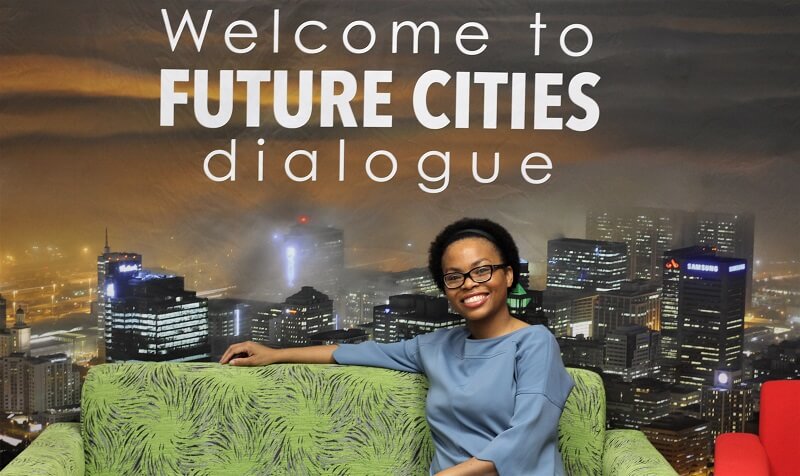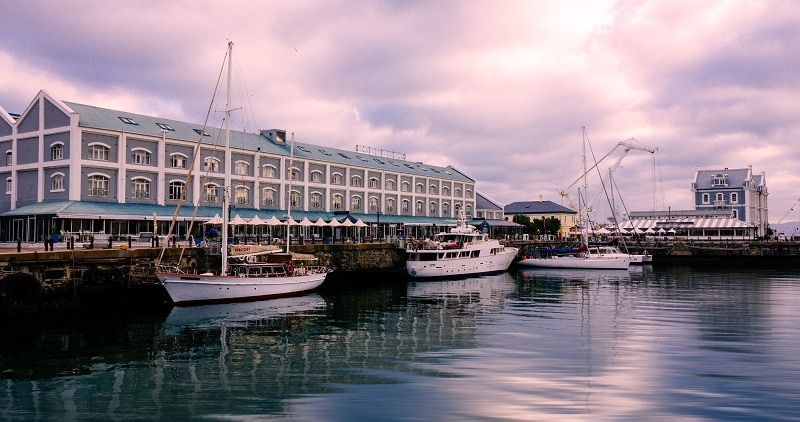Talent Rich Cape Town a Leader in Innovation
30 October 2020
Bridgette Morris is the City of Cape Town’s Innovation and Operational Effectiveness Manager. She moved to Cape Town in 2016 and had always dreamed of living and working in the city. We caught up with Morris for a quick Q&A about the job, her journey and what she enjoys most about Cape Town.
You head up innovation and operational effectiveness in the City. What does the job entail?
The role involves driving a team that works with City departments to ensure that we drive operational efficiency, using quality management systems, lean management and design-led thinking to embed innovation and deliver customer-centric services.
What excites you most about the role?
Firstly, I was excited to learn that innovation in the City of Cape Town was elevated as an Integrated Development Plan (IDP) project, which meant that each year I would have to report on activities and programmes that the City had implemented to drive innovation and collaboration with stakeholders. Secondly, with the City having won the World Design Capital 2014, it had already started with embedding design-led thinking as a tool through which it would drive its innovation outcomes.
Design-led thinking in itself is an amazing tool which allows for the co-creation of ideas by various stakeholders, with customer-focus as the core for all innovations that aim to enhance service delivery. The responsibility to drive such dynamic and diverse conversations that come out of the design-led thinking process is what excites me about my job.
Tell us about your professional journey so far.
I have a total of 22 years of work experience both in the private and public sector and my career has been a combination of working and studying in between.
My journey in innovation started with development finance organisations. I concluded my studies with the Institute of Marketing Management Graduate School, where I obtained a Bachelor of Business Administration degree (Marketing). My responsibilities in organisations included the establishment of an innovation network and facilitation of the training programmes for the Innovation Champions; implementing an online Innovation Management System (both internal and external); and the roll-out of the Innovation Capability Index Survey, to establish the Innovation Maturity of the organisation.
This led to my next role with the City of Tshwane where we established partnerships with academic institutions, research and science councils within the City’s jurisdiction and developed an innovation strategy that linked up with the City’s Strategic Vision 2055. To create an internal capability, we ran the Innovation Capability Index Survey over two 18 –month periods and established an Innovation Steering committee, which also considered innovations from external stakeholders. Key projects implemented during that time included the Youth FabLab programme and the eKasi Labs, which focused on school-going youth and youth entrepreneurs requiring support to bring their ideas to market. There were also some pilot projects that were implemented, partnering with the Innovation Hub and the innovators who were receiving start-up support from them.
After my four-year tenure with the City of Tshwane, I was excited to learn that the City of Cape Town was focusing on innovation, and when the opportunity made itself available, I applied and was fortunately appointed to the role. The City is obviously quite advanced in implementing innovation and really just required a coordination of these success stories through one central point. The aspect of inclusivity was also a factor to consider and that is really why design-led thinking is the best tool for a context like the City of Cape Town, which has the ‘Inclusive City’ as one of its strategic focus areas.
What do you enjoy most about living and working in Cape Town?
Cape Town offers the opportunity to both work hard and play hard. Working for the City of Cape Town in particular, allows for me to make a positive contribution based on my field of expertise. I always say that the Cape Town citizenry is a demanding one because of its exposure to global best practice both academically and based on the tourism footprint in the city. As a result, the need to innovate the manner in which we deliver services requires that we embed innovation not as ‘the other thing we must do’ but rather as ‘business as usual’. This required a coordination point for all such activities, where we can learn from each other, but more so to come up with ways in which we bring the citizens into the conversation. In this, the City of Cape Town presented itself as forward thinking, and I wanted to be a part of that journey.
On playing hard, I personally resonate so well with Cape Town because it offers me the diverse options in exploring the natural surrounds. I love nature and I am daily exposed to its magnificence as I drive out from work each day with Table Mountain’s view presented as if it were a painting by an artist whose price none could afford. The luscious winelands and breathtaking ocean views also present one with a sense of awe that you don’t get elsewhere.
The whole food, family and friendship culture in Cape Town brings in a deep sense of meaning as a reminder that there is so much more to live for.
Do you have a favourite Cape Town attraction or hangout spot?
Cape Town has always been my first love where South African cities are concerned. In previous roles, I remember always landing at the airport for business and thinking: this feels like home. So there are a number of places in Cape Town that I love going to, which I have enjoyed both as a tourist and over business. They include Kirstenbosch, with the natural biodiversity but also the vibe created with the concerts; Long Street; the Grand Beach Café at the V&A Waterfront; and the winelands.
In 2019, Bloomberg Cities asked some of the world’s leading urban thinkers including mayors, innovators, researchers and futurists about the one thing they hoped would happen in the world of public-sector innovation over the next 10 years. How would you respond to this question?
I would wish that the public sector would recognise that the citizens we serve are the same clients that the private sector services, and if we were not to innovate at the same pace that the world demands, we may just render ourselves extinct.
So the one thing I would hope will happen is that we pay attention to the needs of the citizens and partner with the communities and the private sector in a manner that improves service delivery, and thus the livelihood of each citizen. Key focus would be on new developments in human settlements, the health sector and the provision of basic services in a sustainable manner.
Cape Town has been described as a leader in design, tech and innovation in Africa. What makes Cape Town an innovative city?
Its people. That’s what makes Cape Town innovative! The fact that we all come from such diverse backgrounds; the fact that we get to study in universities that are internationally recognised; the fact that we have a range of investors who are keen to hear about the next best innovation, provide funding and create spaces in partnership with government for innovation to thrive; the fact that we pitch ourselves on par with the best in the world… that is what pushes us to be better and thus innovative.
Would you encourage young professionals to make Cape Town their home? If so, why?
I most certainly would. I have taken advantage of the opportunity offered to work in Cape Town but have further explored playing, studying and obviously living here. I will be quick to point out that in the beginning it was a bit of a culture shock, but curiosity around how everyone else is navigating through the diverse cultures is what kept me desiring to explore more and thus stay. So I am not just staying in South Africa (#IAmStaying), but I am staying in Cape Town. I am making it my home for its natural beauty, for its diverse cultures, for the opportunities it represents both for studying and working.



